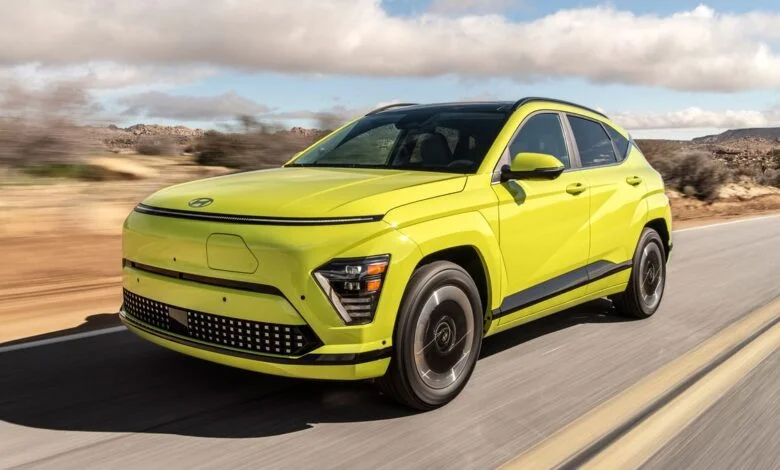Hyundai, known for its innovative approach to automotive design, has made significant strides in the compact car segment by seamlessly blending efficiency with style. This article explores how Hyundai has established itself as a leader in compact car design, showcasing its evolution, key models, and the impact of its designs on the automotive market.
The Evolution of Hyundai’s Compact Car Designs
Hyundai’s journey in compact car design began with humble origins but quickly evolved into a showcase of efficiency, style, and technological innovation.
- Early Beginnings: Hyundai’s initial compact cars focused on affordability and reliability, catering primarily to practical-minded consumers.
- Shift Towards Style: As Hyundai gained global recognition, its compact car designs started incorporating more sophisticated styling cues influenced by European and Asian design trends.
- Technological Integration: Hyundai began integrating advanced technologies such as fuel-efficient engines, smart connectivity features, and safety innovations into its compact car lineup, setting new standards in the segment.
Key Features That Define Hyundai’s Compact Cars
Hyundai’s commitment to blending efficiency with style is evident through its incorporation of distinctive features and design elements.
- Fluidic Sculpture Design: Introduced in the early 2010s, Hyundai’s Fluidic Sculpture design language brought a dynamic and aerodynamic look to its compact cars, enhancing both aesthetic appeal and fuel efficiency.
- Advanced Safety Technologies: Models like the Hyundai Elantra and Hyundai Accent have been equipped with advanced safety features such as Blind Spot Detection, Forward Collision-Avoidance Assist, and Lane Keeping Assist, ensuring both safety and peace of mind for drivers.
- Efficient Powertrains: Hyundai has focused on developing efficient powertrains, including gasoline, hybrid, and electric options, catering to diverse consumer preferences and regulatory requirements worldwide.
Also Read : Timeless Elegance: Hyundai’s Classic Car Designs
Impact of Hyundai’s Compact Car Designs on the Market
Hyundai’s compact car designs have not only resonated with consumers but have also influenced the broader automotive market in several significant ways.
- Market Penetration: Hyundai’s competitive pricing and feature-packed compact cars have captured a substantial market share globally, appealing to budget-conscious consumers without compromising on quality or style.
- Consumer Perception: The reliability, stylish design, and advanced features of Hyundai’s compact cars have enhanced the brand’s reputation, attracting a younger demographic and brand loyalists alike.
- Environmental Responsibility: Hyundai’s commitment to developing eco-friendly compact cars, such as the Hyundai Ioniq and Hyundai Kona Electric, underscores its dedication to sustainability and reducing carbon emissions.
Case Studies of Iconic Hyundai Compact Car Models
Several Hyundai models have become icons within the compact car segment, exemplifying the brand’s philosophy of efficiency meeting style.
- Hyundai Elantra: Known for its sleek design, spacious interior, and impressive fuel efficiency, the Elantra has consistently been a top choice among compact car buyers worldwide.
- Hyundai Accent: A budget-friendly option without sacrificing quality, the Accent combines practicality with modern design elements, appealing to first-time car buyers and urban commuters.
- Hyundai Veloster: The Veloster stands out with its unique three-door design, sporty performance, and innovative features, attracting enthusiasts looking for a compact car with a twist.
Future Directions: Hyundai’s Vision for Compact Car Designs
Looking ahead, Hyundai is poised to continue pushing the boundaries of compact car design, focusing on sustainability, connectivity, and autonomous driving technologies.
- Electric and Hybrid Innovations: Hyundai’s investment in electric vehicle technology, exemplified by models like the Ioniq 5, aims to offer eco-friendly solutions without compromising on performance or style.
- Smart Mobility Solutions: Integration of smart connectivity features and autonomous driving capabilities will redefine the compact car experience, making Hyundai a leader in future mobility solutions.
Conclusion
In conclusion, Hyundai’s compact car designs represent a harmonious blend of efficiency and style, catering to a diverse global audience. From pioneering technologies to iconic models that resonate with consumers, Hyundai continues to innovate and set new standards in the compact car segment. As the automotive industry evolves, Hyundai’s commitment to delivering stylish, efficient, and technologically advanced compact cars ensures its position as a leader in the market.
This article provides a detailed exploration of Hyundai’s success in the compact car segment, offering insights into its design philosophy, key models, market impact, and future directions. It aims to inform and engage readers interested in automotive trends, design evolution, and technological innovation.
(source)
Originally posted 2024-07-04 03:24:22.
